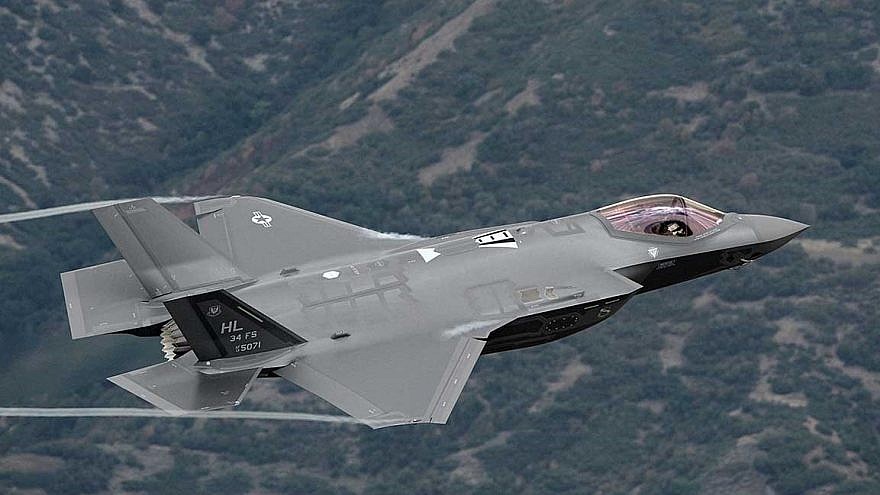The Pentagon has been taking major steps toward suspending its F-35 fighter jet training program for Turkish pilots in the United States in response to Ankara looking to acquire the S-400 Russian missile-defense system, a senior U.S. defense official told Foreign Policy.
Acting U.S. Defense Secretary Patrick Shanahan told his Turkish counterpart in a June 6 letter that the pilots must leave the United States by July 31 and that training for new students will be halted.
“It’s a good move, albeit one that is years too late,” former Pentagon official Michael Rubin told JNS. “The basic problem within the Trump administration remains, however, the unresolved debate between those such as [Special Presidential Envoy for the Global Coalition to Counter the Islamic State of Iraq and the Levant] Jim Jeffrey and his deputy Rich Outzen who, in inner-agency debates, believe that the relationship with Turkey is so important they must excuse, ignore, or apologize for the worst excesses of [Turkish President Recep Tayyip] Erdoğan’s behavior and those who recognize Turkey may no longer be salvageable.”
Aykan Erdemir – who served in the Turkish parliament from 2011 to 2015, and now serves as a senior fellow at the Foundation for Defense of Democracies – told JNS that the decision to purchase the S-400 system has negative consequences for Turkey beyond sanctions.
“The suspension of Turkey’s F-35 pilot training is a reminder that Erdoğan’s purchase of the S-400 air defense system will have ramifications beyond [Countering America’s Adversaries Through Sanctions Act] sanctions,” Erdemir said. “If Erdoğan fails to step back from his deal with [Russian President Vladimir] Putin, Turkey’s security cooperation with the U.S. will suffer a significant blow, as Turkish access to American hardware, partnerships, and training will be severely restricted in the months to come.”
Moreover, continued Erdemir, “coupled with the recent start of the training of Turkish officers in Russia, this could be turning point in Turkey’s relations not only with the U.S. but also with other NATO members, as the Turkish security policy and military become more prone to Russian meddling.”
As such, Erdemir says that what was initially a bilateral conflict is now one that could destabilize NATO, which has long been a goal of Putin.
“To Putin’s delight, what was initially a bilateral conflict between Ankara and Washington, could soon turn into a destabilizing dynamic within the transatlantic alliance,” he said. “Erdoğan’s ill-advised insistence on acquiring a Russian air defense system is likely to hurt not only Turkey’s security and interests but also those of its NATO allies.”


























